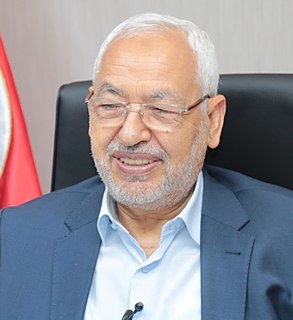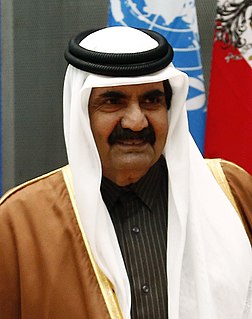A Quote by Paul Wolfowitz
If the Arab world today looked like Tunisia, it would be a huge blow for the extreme ideologies. But Tunisia needs more support than it is getting, particularly from their close neighbors in Europe who have a great stake in North Africa.
Related Quotes
The external support can never substitute internal support, the example that we have to look at very well is Egypt and Tunisia ; they have all the support from the West and from the Gulf and from most of the countries of the world. When they don't have support within their country, they couldn't continue more than - how many weeks ? - three weeks. So, the only reason we stand here for two years and a half is because we have internal support, public support.
I think no country is going to be immune from the Arab awakening because the Arab awakening is driven by deep human longing for dignity, for justice and for freedom. I think that applies to young people in Saudi Arabia as much as to young people in Egypt, Tunisia, or Yemen, or Libya, or Syria. If I were in Saudi Arabia, I would be getting ahead of this and looking for ways to appreciate those aspirations and align my country with them.
If you look at the list of the top wheat importers for 2010, almost half of them are Middle Eastern regimes: Egypt, Algeria, Iraq, Morocco, Yemen, Saudi Arabia, Libya, and Tunisia. Egypt is the number-one importer of wheat in the entire world. Tunisia leads the entire world in per capita wheat consumption. So it's no wonder that the revolutions began with Tunisians waving baguettes in the streets and Egyptians wearing helmets made of bread.
You can understand Tunisia revolution as a failure to censor the internet. And Libya had that failure too. It's very difficult for governments that are autocratic and don't have broad popular support to be in power when a lot of people have these devices. That was what Arab Spring was about, that people could express this and lead to revolution.
I see encouraging signs of democracy developing in other places in the Middle East. In Tunisia, in Iraq, and now in Egypt. Tunisia is the one Muslim country that does something for girls and education. As far as I know, this is the only Muslim country where this is true. There is compulsory education for girls from the age of 5.
Even after the whole democratization process, it's quite clear that the United States are not seen in a positive way in all the Muslim-majority countries - in Egypt, in Libya, even in Tunisia - even though we have now a kind of trying to be recognized as democrats by the Islamists who are running, you know, Tunisia and Egypt. But the popular sentiment is very, very negative.


































